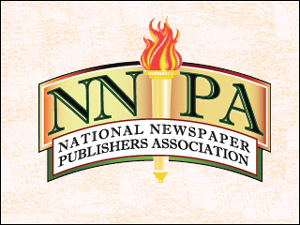Black Press to push pardon for Wilmington Ten
By Khalil Abdullah New America Media | Last updated: Apr 3, 2011 - 11:50:22 PMWhat's your opinion on this article?

While welcoming the pardon campaign, Mr. Chavis emphasized the NNPA effort as an opportunity to educate and revitalize today's youth to be vigilant about protecting the rights and gains so many have sacrificed to attain. |
After hesitating to respond to a question from NNPA columnist and colleague George Curry, the master of ceremonies, about Mr. Chavis' lowest point after being falsely convicted and imprisoned in 1972 as one of the Wilmington Ten, Mr. Chavis became overwrought. “I was warned not to go into the shower,” he said in a faltering voice barely above a whisper, “I couldn't take a bath for eight months.”
Then only 24-years old, Mr. Chavis explained he had been told he was marked for a prison hit; that his life was in daily peril and he shouldn't leave his cell. Arson of a local grocery store was among the charges for which the group was convicted. But Mr. Chavis, who is not from Wilmington, was specifically targeted as the outside agitator, as described in a brief documentary about the case shown during the luncheon.
Mr. Chavis and his co-defendants became an international cause célèbre after Amnesty International declared them, in 1978, political prisoners, the first American prisoners so recognized by the organization.
Legal challenges and media notoriety exposed the prosecutorial misconduct and the collusion of state and federal officials in imprisoning the young activists, many of whom were in their teens, for daring to defy the local practices of school desegregation plans. Though the Wilmington Ten eventually were freed and their sentences commuted by North Carolina's governor, they never received a formal “pardon of innocence.” NNPA is rallying its member newspapers to support that cause in the year ahead.
Mary Alice Thatch, publisher of The Wilmington Journal, provided a historical retrospective on the Wilmington Ten, explaining that her city in southern North Carolina had long been a bastion of White supremacy. She said Cape Fear River “ran red from the blood of our ancestors in 1898” as a result of a terror campaign that targeted the Black community decades before Mr. Chavis arrived as an emissary from the United Church of Christ Commission for Racial Justice. “Ben, thank you for crossing that bridge (to Wilmington) in 1971,” Ms. Thatch said.
The NNPA has yet to announce its strategy around the pardon initiative, but to her peers, Ms. Thatch said she was “asking you help us repay The Wilmington Ten in what I call a very small way” for their efforts to bring social justice to the “birth place of Jim Crow in North Carolina.”
While welcoming the pardon campaign, Mr. Chavis emphasized the NNPA effort as an opportunity to educate and revitalize today's youth to be vigilant about protecting the rights and gains so many have sacrificed to attain. Despite the election of an Black man to the White House, Mr. Chavis said, “We ought to be more vocal now than ever before,” noting, for example, that the current budget discussions on Capitol Hill could result in the closure of several historically Black colleges and universities.
Now in his early 60s, Mr. Chavis has had a long and sometimes controversial career, which included a stint as the executive director of the NAACP. Mr. Chavis was co-founder, with Russell Simmons, of the Hip-Hop Summit Action Network. From an early age, Chavis recognized the power of the press. A North Carolinian native, Chavis said he interned for The Carolina Times when he was 14-years-old. During his incarceration, he wrote not only about The Wilmington Ten, but about other political prisoners as well. Chavis said he is pleased that his editorials, like his recent one on the de-funding threat to HBCUs, could be carried once again by NNPA members.
NNPA Chair and The Los Angeles Sentinel publisher Danny Bakewell encouraged NNPA members to take up the banner and “request a pardon for those ten people,” some of whom are now deceased. He lauded several of NNPA's corporate partners, which, through advertising in member newspapers, assist in publication. Bakewell also announced NNPA's partnership with The Nielsen Company to produce a report on the state of the African-American consumer.
Mr. Chavis added, however, that Blacks also bear responsibility for sustaining their own media. “I want the Black community to step up,” he said. “We have to pay for our own freedom … We also have to reach into our pockets.”
INSIDE STORIES AND REVIEWS
-
-
About Harriett ... and the Negro Hollywood Road Show
By Rabiah Muhammad, Guest Columnist » Full Story -
Skepticism greets Jay-Z, NFL talk of inspiring change
By Bryan 18X Crawford and Richard B. Muhammad The Final Call Newspaper @TheFinalCall » Full Story -
The painful problem of Black girls and suicide
By Charlene Muhammad -National Correspondent- » Full Story -
Exploitation of Innocence - Report: Perceptions, policies hurting Black girls
By Charlene Muhammad -National Correspondent- » Full Story -
Big Ballin: Big ideas fuel a father’s Big Baller Brand and brash business sense
By Bryan Crawford -Contributing Writer- » Full Story






 Click Here Stay Connected!
Click Here Stay Connected!








